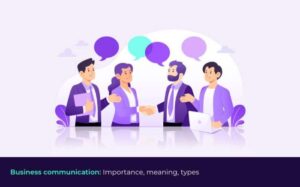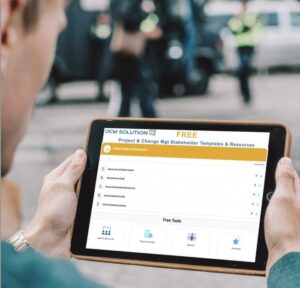
Virtual interview setup is revolutionizing how organizations approach hiring, making the process more accessible and efficient for both candidates and employers.
This guide delves into the essential components, technologies, and best practices for conducting successful virtual interviews, ensuring candidates and interviewers are well-prepared in this new landscape.
Virtual Interview Setup Essentials
In today’s job market, virtual interviews have become a standard practice, making it essential to have an effective setup. A well-prepared virtual interview environment can significantly impact the impression you make on potential employers. This section explores the key components and best practices for an optimal virtual interview setup.
Key Components of a Successful Virtual Interview Setup
To ensure a successful virtual interview, several key components must be considered:
- Technology: Reliable internet connection, a functioning webcam, and a clear microphone are essential for clear communication.
- Equipment: Using a computer or laptop with updated software can help avoid technical glitches during the interview.
- Environment: A quiet space free from distractions is crucial for maintaining focus during the interview.
Optimizing Lighting and Background
Lighting and background play a significant role in virtual interviews. Proper lighting can enhance your appearance, while a clean background can minimize distractions.
- Lighting: Utilize natural light where possible or invest in a ring light to ensure your face is well-lit.
- Background: Choose a simple, uncluttered background to keep the focus on you. A neutral wall or a tidy bookshelf works well.
Business Innovation in Virtual Interviews
Virtual interviews are revolutionizing hiring processes, providing a more efficient and accessible way to connect with candidates. This change not only benefits employers but also job seekers.
Transforming Traditional Hiring Processes
The shift to virtual interviews has transformed how businesses approach hiring.
- Efficiency: Virtual interviews eliminate the need for travel, saving time and resources for both parties involved.
- Accessibility: Candidates from various geographical locations can interview without the constraints of distance, broadening the talent pool.
Innovations in Virtual Interview Technology
Recent technologies have enhanced the virtual interview experience. Features such as AI-driven interview platforms, video analysis tools, and automated scheduling software improve the efficiency of the hiring process.
- AI Tools: These tools can assess a candidate’s responses and body language, providing insights into their suitability for the role.
- Video Platforms: Advanced video conferencing tools offer features like recording, which allows hiring teams to review interviews later for better decision-making.
International Business and Virtual Interviews
Conducting virtual interviews in an international context requires understanding cultural nuances and logistical challenges.
Cultural Considerations in International Interviews
Different cultures have unique approaches to communication and professionalism, which can impact virtual interviews.
- Communication Style: Recognizing varying levels of directness and formality is essential for effective interaction.
- Body Language: Understanding cultural differences in non-verbal cues can help mitigate misunderstandings.
Strategies for Different Time Zones
Scheduling interviews across time zones can be challenging.
- Flexible Scheduling: Use scheduling tools that allow candidates to select available times based on their local time zones.
- Calendar Clarity: Clearly state the time zone in all communications to avoid confusion.
Job Search Techniques for Virtual Interviews
Preparing for virtual interviews requires specific job search techniques that can enhance a candidate’s chances of success.
Essential Job Search Techniques
Candidates should consider the following techniques to prepare effectively:
- Tailoring Applications: Customize resumes and cover letters to align with the job description and company values.
- Research: Investigate the company and its culture to formulate insightful questions and demonstrate genuine interest during the interview.
- Practice: Conduct mock interviews to build confidence and refine responses to common questions.
Framework for Rehearsing
Developing a structured rehearsal framework helps in delivering polished responses during an actual interview.
- Key Questions: Prepare answers to frequently asked questions and rehearse them until they feel natural.
- Feedback Loop: Seek feedback from peers or mentors after mock interviews to identify areas for improvement.
Business Management Considerations
Integrating virtual interviews into the hiring process requires careful management and evaluation strategies.
Managerial Aspects
Organizations must consider various managerial aspects when implementing virtual interviews.
- Consistency: Establish a standardized process for evaluating candidates to ensure fairness and reliability in assessments.
- Training: Provide training for interviewers on the best practices for conducting virtual interviews.
The Role of Feedback
Feedback is crucial for refining virtual interview strategies.
- Continuous Improvement: Collect feedback from candidates and interviewers to enhance the virtual interview experience.
- Assessment Adjustments: Use insights gained to adjust evaluation criteria and interview techniques as needed.
Marketing Direct and Virtual Interviews
Marketing professionals can benefit significantly from virtual interviews in their recruitment efforts.
Leveraging Virtual Interviews
Marketing teams can utilize virtual interviews effectively to attract top talent.
- Showcasing Company Culture: Use virtual interviews to give candidates a glimpse into the company’s culture and values.
- Promotional Strategies: Utilize social media to share insights about the interview process and engage with potential candidates.
Case Studies of Success
Several companies have successfully implemented virtual interviews in their marketing recruitment efforts.
- Company A: Increased their talent pool by reaching candidates globally through virtual interviews.
- Company B: Streamlined their hiring process, resulting in reduced time-to-hire and improved candidate experience.
Business Networking through Virtual Interviews
Virtual interviews also present opportunities for networking, benefiting both candidates and employers.
Networking Opportunities
Candidates and employers can enhance their networking efforts through virtual interactions.
- Building Relationships: Use virtual interviews as a platform to foster professional relationships and connections in the industry.
- Follow-Up Strategies: Implement strategies for following up after interviews to maintain contact and enhance networking efforts.
Business Outsourcing and Virtual Interviews
Outsourcing the hiring process increasingly involves virtual interviews, offering significant benefits.
Implications for Outsourcing Hiring
Outsourcing firms can leverage virtual interviews to improve their hiring efficiency.
- Global Talent Acquisition: Virtual interviews facilitate access to a broader range of candidates from different parts of the world.
- Streamlined Processes: Standardizing the interview process can lead to faster hiring and reduced costs.
Successful Practices in Outsourcing
Outsourcing companies have adopted several best practices for virtual interviews.
- Continuous Training: Conduct regular training sessions for interviewers to keep them updated on best practices.
- Candidate Experience: Prioritize a positive candidate experience during virtual interviews to attract top talent.
Business Presentation Skills for Virtual Interviews
Presentation skills are vital for candidates during virtual interviews, influencing the overall impression they make.
Importance of Presentation Skills

Effective presentation skills can differentiate candidates in a competitive job market.
- Engagement Techniques: Use techniques to engage the interviewer, such as maintaining eye contact and active listening.
- Clear Communication: Articulate thoughts clearly and concisely, ensuring messages are understood.
Checklist for Effective Communication
A checklist can help candidates ensure effective communication during virtual presentations.
- Environment Check: Ensure a distraction-free environment before the interview begins.
- Technical Setup: Test all equipment beforehand to avoid technical issues during the interview.
- Practice Responses: Rehearse key points to ensure clarity and confidence during delivery.
Business Productivity and Virtual Interview Efficiency
Enhancing productivity during the virtual interview process is critical for organizations.
Enhancing Productivity in Scheduling

Streamlining the scheduling process can save time and resources.
- Utilizing Tools: Employ scheduling software that allows candidates and interviewers to find mutual availability seamlessly.
- Batch Interviewing: Consider batching interviews to maximize the use of time for interviewers.
Reducing Distractions
Creating a focused environment during virtual interviews is vital.
- Minimizing Background Noise: Choose a quiet location and inform others of the scheduled interview to minimize interruptions.
- Limiting Visual Distractions: Use a clean background and avoid wearing distracting patterns or colors.
Resumes and Cover Letters for Virtual Interviews
Tailoring resumes and cover letters for virtual applications can significantly enhance a candidate’s chances of success.
Guidelines for Resumes and Cover Letters
Candidates should follow specific guidelines to ensure their application materials stand out.
- Customization: Tailor each resume and cover letter to align with the job description and company values.
- Digital Portfolios: Include links to digital portfolios to showcase work effectively during virtual interviews.
Importance of Follow-Up
Following up after submitting application materials is crucial in the virtual context.
- Timing: Send a follow-up email within a week of submission to reiterate interest in the position.
- Expressing Gratitude: Thank the employer for considering your application and express enthusiasm for the opportunity.
Sales Management and Virtual Interview Approaches
Virtual interviews present unique challenges and opportunities in the recruitment of sales candidates.
Challenges in Interviewing Sales Candidates
Interviewing sales candidates virtually requires careful consideration of various factors.
- Assessment of Skills: Developing scenarios to assess sales skills virtually can be challenging but essential for selection.
- Building Rapport: Establishing a personal connection in a virtual setting can be more difficult than in person.
Methods for Assessing Sales Skills
Implementing effective assessment techniques is crucial for hiring sales talent.
- Role-Playing Scenarios: Use role-play exercises to evaluate candidates’ responses in simulated sales situations.
- Behavioral Questions: Ask behavioral questions to gauge past sales experiences and strategies.
Risk Management in Virtual Interview Settings
Virtual interviews come with certain risks that organizations must address to ensure a successful process.
Identifying Potential Risks
Recognizing the risks associated with virtual interviews is the first step in mitigating them.
- Technical Failures: Issues with technology can disrupt the interview process, so a backup plan is essential.
- Data Privacy Concerns: Protecting candidates’ data during the interview process is crucial for maintaining trust.
Best Practices for Security
Implementing best practices can enhance security during virtual interviews.
- Secure Platforms: Use reputable and secure video conferencing platforms to protect sensitive information.
- Confidentiality Agreements: Consider using confidentiality agreements to safeguard proprietary information during interviews.
Small Business Strategies for Virtual Interviews
Small businesses can benefit greatly from effective virtual interview strategies.
Resource List for Small Businesses
A comprehensive resource list can help small businesses streamline their virtual interview processes.
- Interview Templates: Create templates for interview questions and evaluation criteria.
- Training Materials: Develop training materials to help team members conduct effective virtual interviews.
Successful Virtual Hiring Practices
Examining case studies can provide insights into the best practices for small businesses.
- Company C: Successfully hired remote employees using a structured virtual interview process.
- Company D: Increased their candidate pool by adopting virtual interviews, resulting in successful hires.
Strategic Planning for Virtual Interview Implementation
Developing a strategic plan is essential when adopting virtual interviews in an organization.
Steps for Developing a Strategic Plan
Organizations should follow a structured approach when planning for virtual interviews.
- Assessment of Needs: Evaluate current hiring processes and identify areas for improvement through virtual interviews.
- Training Requirements: Determine the training needs for interviewers and create a comprehensive training program.
Evaluating Effectiveness Over Time
Monitoring and evaluating the effectiveness of virtual interview processes is critical for continuous improvement.
- Feedback Mechanisms: Implement feedback mechanisms to gather insights from candidates and interviewers.
- Performance Metrics: Define key performance indicators to measure the success of virtual interviews.
Workplace Communication in Virtual Interview Contexts
Effective communication skills are paramount during virtual interviews, impacting overall success.
Necessary Communication Skills
Candidates should develop various skills to enhance communication during virtual interviews.
- Active Listening: Demonstrating active listening skills can foster better understanding and rapport.
- Articulate Expression: Clearly expressing thoughts and ideas is crucial for successful communication.
Enhancing Non-Verbal Communication
Non-verbal communication can significantly influence the impression you make during virtual interviews.
- Body Language Awareness: Being aware of your body language can help convey confidence and engagement.
- Facial Expressions: Use appropriate facial expressions to reflect enthusiasm and interest throughout the interview.
Team Building Through Virtual Interviews
Virtual interviews can be leveraged to enhance team dynamics and cohesion in organizations.
Contributing to Team Dynamics
Involving team members in the virtual interview process can strengthen team bonds.
- Collaborative Interviews: Include team members in interviews to assess cultural fit and team compatibility.
- Feedback Sharing: Encourage team members to share their insights and feedback post-interview to promote collaboration.
Assessing Cultural Fit
Evaluating cultural fit is crucial for maintaining team cohesion.
- Behavioral Assessments: Use behavioral assessments to gauge a candidate’s alignment with company values.
- Team Interactions: Facilitate informal interactions between candidates and team members during the interview to assess compatibility.
Ending Remarks
In conclusion, mastering the virtual interview setup not only enhances the recruitment experience but also fosters a more inclusive and effective hiring process, paving the way for future innovations in talent acquisition.
Quick FAQs
What technology is needed for virtual interviews?
You’ll need a reliable computer or tablet, a stable internet connection, a webcam, and a microphone, along with any specific software the company requires.
How should I dress for a virtual interview?
Dressing professionally is important, just like you would for an in-person interview. Aim for business casual or formal attire depending on the company culture.
What should I do if I experience technical issues during the interview?
Stay calm, inform the interviewer of the issue, and try to resolve it quickly. If necessary, suggest rescheduling the interview.
How can I make a good impression virtually?
Ensure you have good lighting, a tidy background, maintain eye contact by looking at the camera, and engage actively in conversation.
Is it okay to have notes during a virtual interview?
Yes, having notes is acceptable and can be helpful. Just make sure you don’t appear overly reliant on them during the discussion.




